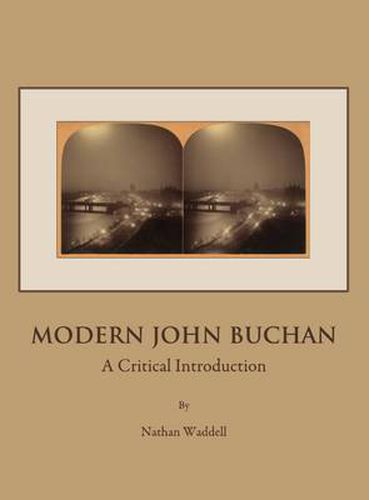Readings Newsletter
Become a Readings Member to make your shopping experience even easier.
Sign in or sign up for free!
You’re not far away from qualifying for FREE standard shipping within Australia
You’ve qualified for FREE standard shipping within Australia
The cart is loading…






This book offers an introduction to the breadth and diversity of the literary and non-literary work of John Buchan (1875-1940). It stakes a claim for him as an engaged interpreter of twentieth-century modernity, and provides evaluative readings of his output. In addition to demonstrating how Buchan’s work complicates the reductive view of early twentieth-century literature as neatly cordoned-off into low and high forms of production, this book discusses his theories of empire and imperialism, his account of historiography, and his response to the First World War. In addition to his many roles as a journalist, propagandist, war reporter, editor, civil servant, and statesman, Buchan was a committed literary critic, philosopher, and writer of history. This book explores the many connections between his work and such modernists as Joseph Conrad, Ford Madox Ford, D. H. Lawrence, and Wyndham Lewis, and it situates Buchan as an intellectual figure who provided a distinctive set of readings of his modern times. Running throughout is a consideration of Buchan’s fascination with binaries, doubles, and duality, which his work variously upholds and investigates. It ends with a discussion of Buchan’s most famous work-The Thirty-Nine Steps (1915)-in relation to paranoia and pathology.
$9.00 standard shipping within Australia
FREE standard shipping within Australia for orders over $100.00
Express & International shipping calculated at checkout
This book offers an introduction to the breadth and diversity of the literary and non-literary work of John Buchan (1875-1940). It stakes a claim for him as an engaged interpreter of twentieth-century modernity, and provides evaluative readings of his output. In addition to demonstrating how Buchan’s work complicates the reductive view of early twentieth-century literature as neatly cordoned-off into low and high forms of production, this book discusses his theories of empire and imperialism, his account of historiography, and his response to the First World War. In addition to his many roles as a journalist, propagandist, war reporter, editor, civil servant, and statesman, Buchan was a committed literary critic, philosopher, and writer of history. This book explores the many connections between his work and such modernists as Joseph Conrad, Ford Madox Ford, D. H. Lawrence, and Wyndham Lewis, and it situates Buchan as an intellectual figure who provided a distinctive set of readings of his modern times. Running throughout is a consideration of Buchan’s fascination with binaries, doubles, and duality, which his work variously upholds and investigates. It ends with a discussion of Buchan’s most famous work-The Thirty-Nine Steps (1915)-in relation to paranoia and pathology.